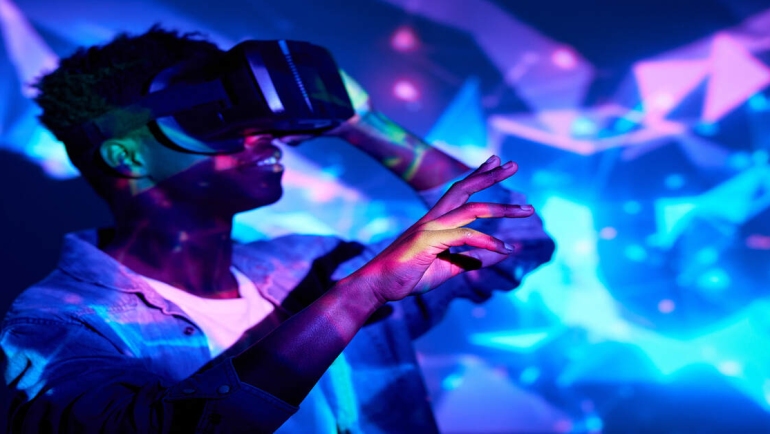Music Technology November 12, 2025

7 Skills That Define Great Artists? Unlock Your Potential
Art is often seen as a divine gift, but true greatness stems from honed expertise. The Skills That Define Great Artists form the foundation of exceptional creativity, blending technical prowess with emotional insight. Whether you’re an aspiring painter, writer, or performer, understanding these core abilities—observation, technical mastery, and beyond—empowers you to elevate your work from ordinary to extraordinary, fostering a deeper connection with your audience and the world around you.
This discussion considers the key skills which distinguish exceptional artists and shows how would-be artists can observe their activities and apply them to their own work.
Observation: Seeing Beyond the Surface
The most basic techniques of great artists are the ability to see the world to its depth. This extends beyond the observation of shapes and colors, it is about the observation of the subtlety of emotion, light, movement, and human manners. Artists such as painters spend hours learning how a shadow plays on the face of a subject whereas writers take note and listen to conversations and gestures in order to get a real dialogue. This is a skill that is built with patience, being mindful, and having a keen eye to details. Focusing on observation as the core part of Skills That Define Great Artists, it is possible to say that it helps the creators to capture the nuances of reality and transform them into impressive works of art.
Technical Mastery and Continuous Practice
The necessary element is technical skill. Skill in one of the mediums such as paint, clay, musical instruments, or computer tools helps the artists convey their thoughts. The detailed study of anatomy and viewpoint, done by Leonardo da Vinci, or the practice with the cello of Yo-Yo Ma, are examples of how Skills That Define Great Artists are developed through years of hard study. The constant practice guarantees that technical constraints do not curtail creativity and artists are free to get experimented and creative.
Creativity and Innovation
Great artists always go to extremes, experimenting with concepts, approaches, and styles. Creativity does not just mean inspiration but it is the capacity to see the relationships between things that are unrelated, imagine and break through the norms. Indicatively, the revolutionary cubism by Picasso redefined the visual art through a new interpretation of the perspective and the form. On the same note, the modern digital artists can integrate technology with conventional methods in order to evoke immersion. Imagination, then, is one of the pillars of the Skills That Define Great Artists, which enables their art to have an echoing effect over time and culture.
Emotional Intelligence and Empathy
Human experience manifests itself through art, and it is vital to comprehend and express feelings. Empathy enables the artists to be able to read the stories, feelings and social problems in their true colors. Artists, authors and artists who are good at this ability, can stir strong emotions in their audience and make the connection that is not based on language or location. One of the most versatile of the Skills That Define Great Artists that can be identified as the most subtle yet effective is emotional intelligence because it allows art to appeal to both personal and universal at the same time.
Critical Thinking and Problem-Solving
Problem-solving is a common activity in artistic production, such as, but not confined to, solving compositional, conceptual, or technical problems. Critical thinking will enable artists to critically assess their work, test possible solutions, and will act upon an idea until reaching the intended effect. This analytical ability supplements the aspect of creativity so that the aspect of innovation is not arbitrary. The Skills That define great artists, such as the skill to evaluate and repeat is essential to achieve constant development and success.
Communication and Storytelling
Great artists are narrators. They represent stories, ideas and concepts with the help of visual imagery, performance or sound. Communication has to do with perception of the audience, speed and the clarity of words. In a mural, symphony or a literary work, technical ability is turned into meaningful art through the power of the exertion of communication. Storytelling, consequently, is an element of the Skills That Define Great Artists that help them to connect the perception of the artist and the meaning perceived by the audience.
Adaptability and Lifelong Learning
The artistic environment keeps changing. With time, technologies evolve, cultural backgrounds change, and the artistic standards evolve. Great artists are committed to learning throughout their lifetime and they adapt their tools, techniques and trends without undermining their unique voice. Presented by digital illustration, mixed-media installments, and interactive performance artwork, it is evident that adaptability enables artists to stay relevant as they keep on innovating. Knowing the importance of growth and adaptivity is a crucial lesson of the Skills That Define Great Artists.
Discipline and Work Ethic
Discipline cannot happen without talent. Great artists train, focus on practice and take projects seriously and persistently. Discipline is what makes sure that creativity is not put to waste and turns random inspiration into finished pieces. Early-sketching in the mornings to practicing continuously, the work ethic of the artist usually puts a difference between good work and masterpieces. This is a quality of this field in the Skills That Define Great Artists, which strengthens the relationship between hard work and success.
Observation of Society and Culture
Art does not exist in a vacuum. The understanding of society, culture and human behavior is a way of enhancing artistic work. The artists who interact with contemporary events, social movements and cultural changes are able to make their work relevant and deep. This understanding permeates themes, symbolism and context meaning that art has a life beyond aesthetics. One of the important Skills That Define Great Artists, therefore, is cultural literacy and social observation, so that the work of the artist can comment and reflect the world in a meaningful way.
Persistence and Resilience
There will always be rejection, criticism and failure when it comes to art. Being great means having resilience (the ability to continue despite the adversities). There were numerous great artists who went through the years of anonymity before they were recognized. Their devotion to their constant progress, experimentation, and expression of themselves is a good example of how Skills That Define Great Artists are not limited to technique, but also to attitude and persistence.
Frequently Asked Questions (FAQs)
1: Can these skills be learned, or are they innate?
While natural talent helps, most of these skills are developed through deliberate practice, observation, and mentorship. Anyone committed to growth can cultivate them over time.
2: Which skill is most important for aspiring artists?
All skills are interconnected, but observation and emotional intelligence are foundational. They allow artists to see and understand the world deeply, informing all other aspects of creation.
3: How can non-artists benefit from these skills?
Skills like critical thinking, creativity, empathy, and communication are transferable to many fields, including business, education, and leadership, demonstrating the broad value of lessons learned from art.
Final Thoughts
It is not an easy path to artistic proficiency, but it is one that is made through deliberate study, training, and introspection. Learning Skills That Define Great Artists helps to realize that it is not all that one is born with talent but rather achieves through observation, practice, creativity and resilience. The skills are inspirational to aspiring artists who can incorporate them in their work in order to realize personal development and art influence.But after all, it is great artists who teach us that art is a craft and a conversation with the world. With the development of these competencies, anyone will be able to gain knowledge, enhance his or her creativity and make significant contributions to the culture sphere.


